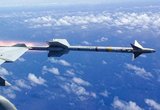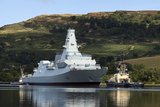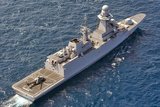DIMDEX: Naval commanders call for maritime cooperation
Navy leaders called for greater cooperation in the modern maritime security environment at the Middle East Naval Commanders Conference in Doha on 26 March.
More than 80% of trade flows through the world’s ports and as more and more countries become hooked into the global economy, it becomes ever more important to insure sea lanes and ports.
‘Freedom of movement at sea sustains our economies,’ VAdm John Miller, Commander US Naval Forces Central Command, pointed out. ‘The key to maintaining security here in the Gulf is partnership. The US has maintained a continuous presence in the Gulf for
Already have an account? Log in
Want to keep reading this article?
More from Naval Warfare
-
![Turkey targets Italian market with strategic partnership on USVs and hybrid platforms]()
Turkey targets Italian market with strategic partnership on USVs and hybrid platforms
Havelsan, VN Maritime and Piloda Defence will collaborate to develop and integrate a range of maritime solutions with a view to secure a first procurement contract in Italy in the first half of this year.
-
![Could Asia and the Middle East offer growth opportunities for Italy’s Fincantieri?]()
Could Asia and the Middle East offer growth opportunities for Italy’s Fincantieri?
Export campaigns for Fincantieri’s submarines and frigates are central to the company’s ambitions as billions of dollars in unawarded contracts come into focus.
-
![US Navy to develop an undersea networking capability to support UUV operations]()
US Navy to develop an undersea networking capability to support UUV operations
The NEREUS project aims to enhance and expand the US Navy’s existing communications systems, enabling crewed/uncrewed seabed and subsurface missions.






















